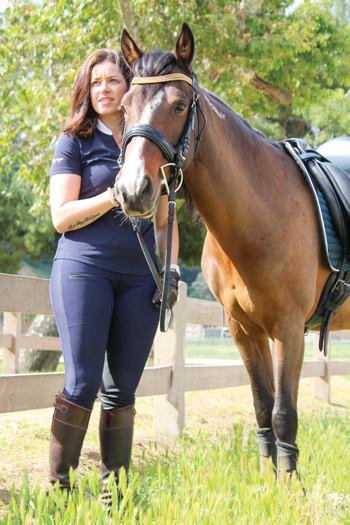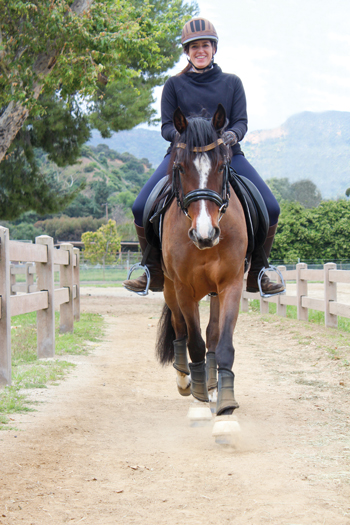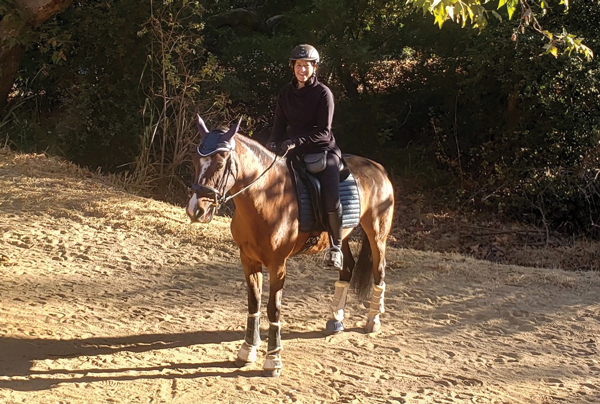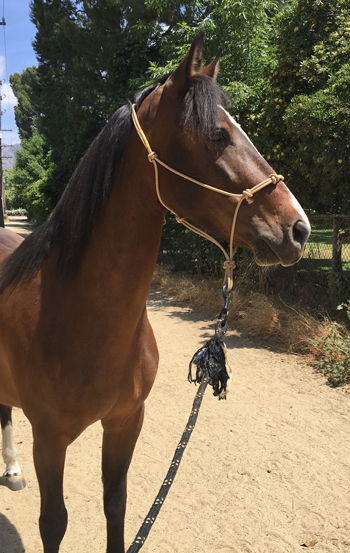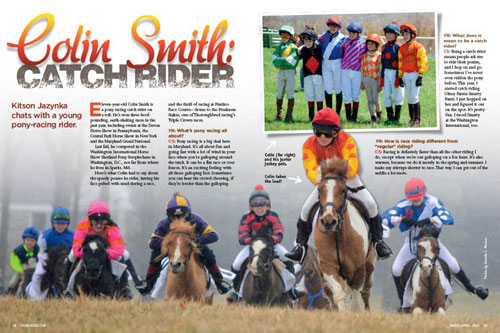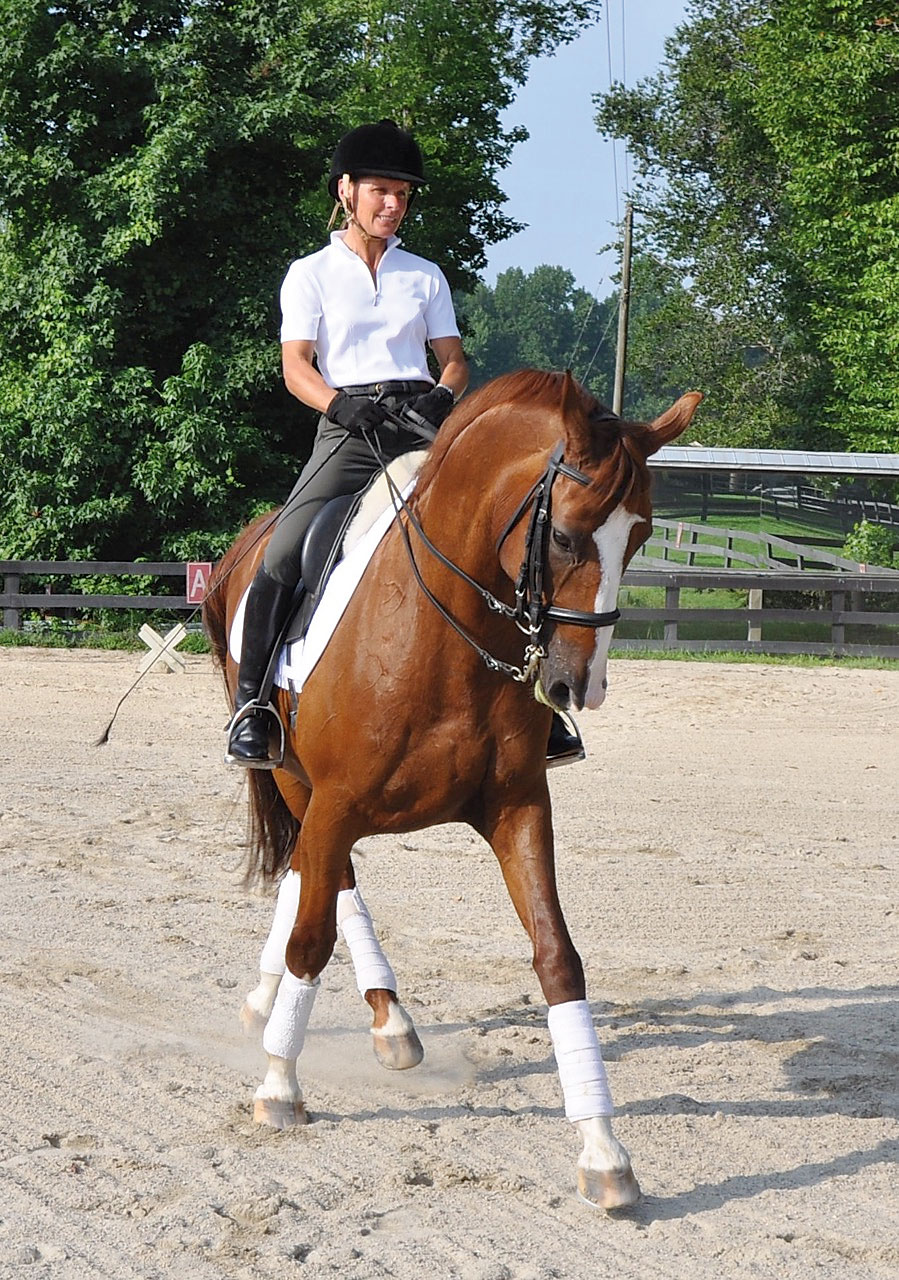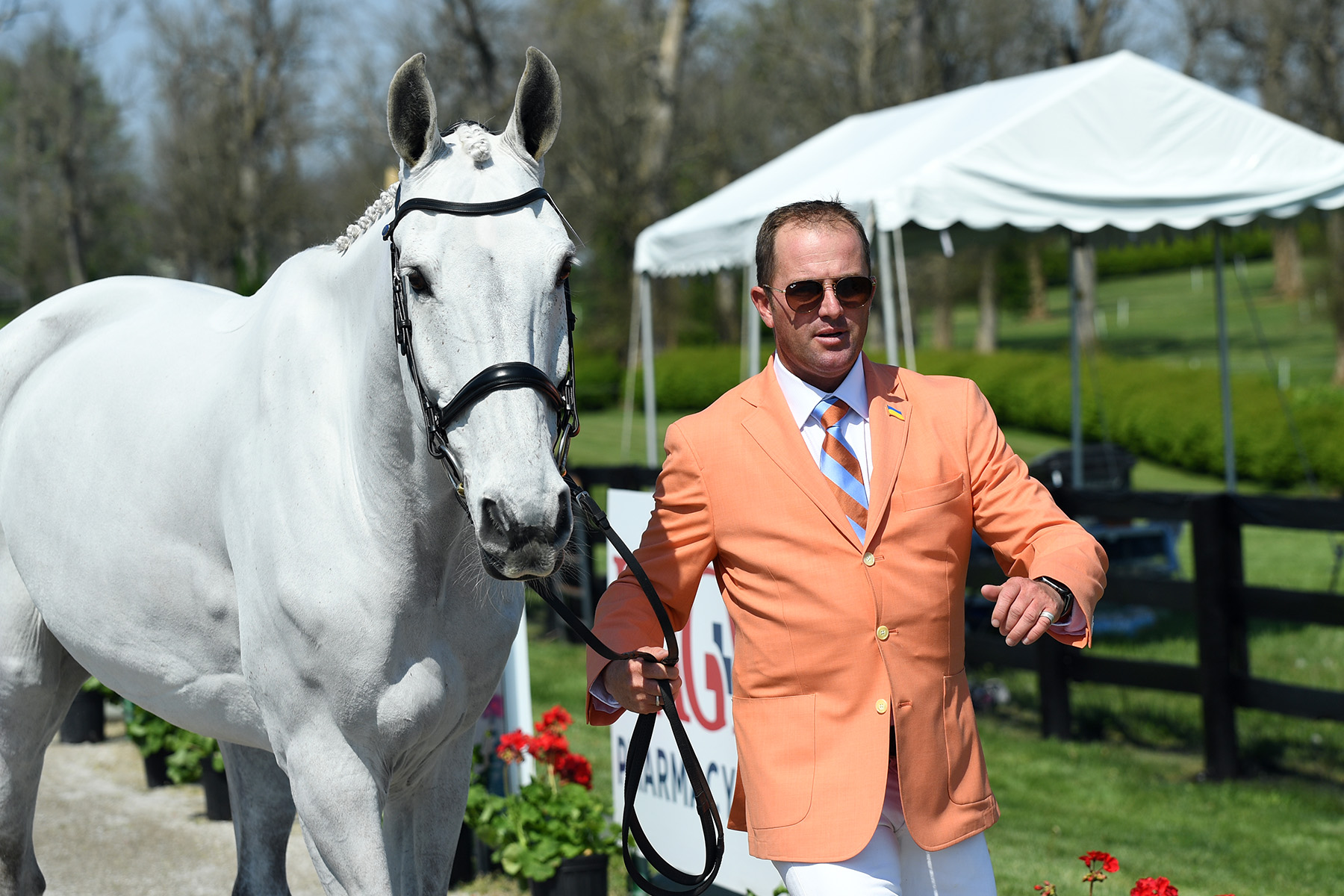On October 1, 2017, Amélie Bellefille was standing in front of the stage at the Route 91 Harvest Music Festival in Las Vegas, Nev., when the largest mass shooting in American history occurred. Fifty-nine people were killed and more than 500 wounded. Luckily, she is a survivor of the Las Vegas shooting.
“I was under fire the whole time of the shooting, witnessing what I call a door opened to hell,” says Bellefille. “Unlike my friends, I froze the whole time.”
She thought she would die that night. Scores of people around her—just a few inches away—were seriously wounded, some fatally. Bellefille escaped the horror physically, except for bruises from panicked concertgoers trampling over her as they fled. Although her body was relatively unscathed, Bellefille was mentally devastated.
Volunteer therapists who work with military veterans offered counseling to the survivors of the Las Vegas shooting, and Bellefille began intense, full-time therapy for post-traumatic stress disorder. She is still in therapy today but is now navigating a healing path with the help of a gentle Mustang who selected her from across an adoption facility corral fence.
Horses and Healing
“During the therapy, I was not inclined to talk to anyone,” says Bellefille. “My trust in humans was ruined. How could someone do this to innocents?”
However, one of the therapists, Johnny Urrutia, a cowboy from Idaho who is an Eagala-certified equine therapist (a therapist trained to use horses for psychotherapy), guided Bellefille to share her feelings with a special mare.
“We had to go away with the horse and talk to it,” says Bellefille. “Say whatever was on our heart. I had this big gray mare, Eva. She was kind and sweet, like a tall angel. I started shaking, and tears poured out of my eyes. I told her everything that happened and how I felt: guilt, anger, fear, pain, disappointment in people. Johnny immediately saw that I opened up at this moment.”
Confiding in a horse came naturally to Bellefille, as horses figure prominently in her culture and personal history. She grew up in the Loire Valley of France, home to castles, vineyards, Renaissance gardens and Cadre Noir de Saumur, the traditional riding school of France.
As a child, Bellefille started riding ponies and grew as an equestrian under the instruction of a four-star endurance trainer as well as classical instruction from a Saumur Cadre Noir trainer who has remained a close friend.
She bought her first horse—an “opinionated” black off-track mare—followed by an Arabian/Boulonnais cross, a breeding combination favored by the French cavalry. When Bellefille left France to study at the University of California, Los Angeles, her black mare was retired to green pastures at her mother’s home, and Bellefille’s second horse was sold to a dressage riding school. Saying goodbye to her horses broke her heart, but she didn’t have the necessary funds to ship a horse (or two) to Los Angeles.
Mustang Motivation
During her second therapy session, Johnny suggested that owning a horse again could be a good thing—a reason to keep moving and build trust. Bellefille took his words to heart. An intriguing horse from the therapy program had captured her interest.
“In the barn, there was a chestnut mare with a weird freeze brand on her neck,” she says. “She was a Mustang. I had no idea we could adopt these horses. In Europe, Mustangs are wild animals. Legends. The unreachable horses. The ones that cannot be gentled.”
So she began researching Mustangs. In April 2018, a special Mustang became Bellefille’s “guardian angel and savior.” She would eventually name the mare Kara after one of the Valkyries, a female creature from Norse mythology who would walk over battlefields and determine who would live and who would die.
“I figured this name fits her well,” says Bellefille. “After my traumatic experience, I was given the gift to have a second chance in life.”
She says that she didn’t pick Kara, Kara picked her.
“She was untouched in a pipe corral at a Mustang TIP [Trainer Incentive Program] training center, waiting for her turn to be gentled.”
According to Kara’s records, the mare was born in a facility after the Calico roundup in Fallon, Nev., and moved around from facility to facility until she was 7 years old.
Approach and Retreat
When Bellefille arrived at Wild Horse Ranch Los Angeles, run by Mustang TIP trainer Kate LaCroix, a little bay mare quietly stared at her as soon as she got out of her car. The horse had never had human contact except from the tight chute where she received medical care and hoof trims.
“That’s the one I was thinking about for you; I named her Noël,” LaCroix told Bellefille.
LaCroix showed Bellefille how to approach a wild Mustang with the approach-and-retreat method.
“I went in the corral and the mare was in a corner,” says Bellefille. “I made her move a bit and started to get closer and closer. Kate told me to try to give her hay from my hand, avoiding eye contact and turning my body slightly so I didn’t threaten her. Little by little, the mare came and grabbed a few pieces of hay from my hand. It was magical.”
Next, LaCroix moved Noël to the round pen to see how she would react in a larger environment. She asked her to trot and canter so Bellefille could see her move.
“She then asked me if I wanted to give her the carrots I brought,” says Bellefille. “After a few tries, the mare settled and stopped running away from me. Without looking at her, I placed a carrot in my hand and waited. A couple seconds later, she took a step toward me, elongated her neck from far away, grabbed a piece of the carrot and ran away. It was magical.
She trusted me a bit. I tried again minutes later. This time, the mare took two steps toward me, grabbed the carrot and stayed while eating it, looking at me. I broke into tears.”
LaCroix cried, too.
“Little by little, I touched her nose,” Bellefille says. “The mare stayed close for a while, and I went away, taking a break from all these emotions. While I was walking away, she watched me the whole time. I think she knew. We both knew. I was a broken mess at the time. I didn’t trust anyone. I went through a difficult traumatic event. That’s what led me to get a horse. In this case, that’s what led me to get this Mustang. I knew at that moment she was the one. She picked me.”
This survivor of the Las Vegas shooting credits her horse as the reason she is alive today.
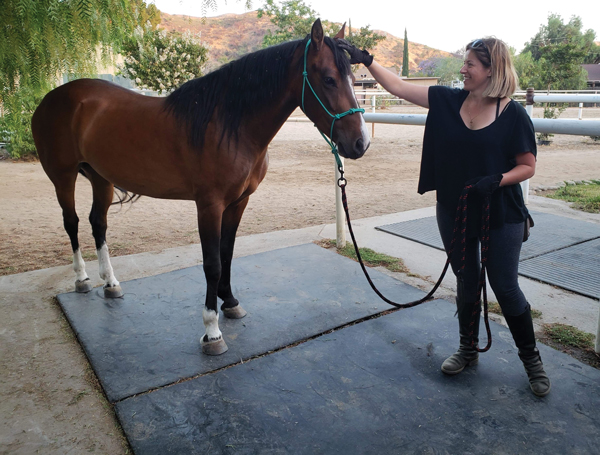
Kara and Amélie quickly bonded as a team and learned to trust each other. Courtesy Amélie Bellefille
“She didn’t have much trust in people and neither did I,” says Bellefille. “So we both bonded as a team immediately and worked together in trusting each other. It was hard. It was not as easy as a domestic horse. Any mistake from me, and she was throwing it in my face right away. A small tension. A small insecurity. A fear. Nervousness. Depression. She would let me know in a fraction of a second. She reads right through me and sees people for what we are. [Horses] feel the energies more than us. They are aware of every little thing around them. That is how they survive in the wild.”
A Head for Business
In addition to finding light in her relationship with Kara, Bellefille launched her own equestrian-related small business, My Horse’s Closet (www.myhorsescloset.com), in the fall of 2018 as an outlet to express her artistic side and fill her own need for unique, yet affordable, riding accessories. Glittery saddle pads, brightcolored stirrup irons with inlaid crystals, and boots for the horse are some of the products from Bellefille’s side hustle.
She hopes to one day merge her creative passion and horse love into full-time work.
In the meantime, Bellefille is content to strengthen her relationship with Kara and bring fashionable equestrian products to market during the off hours from her design job at a luxury jewelry brand.
Bellefille is looking to the future and believes Kara is going to love trail riding and be wonderful at dressage. However, she remains open to learning more and doing what her mare likes. Another future plan Bellefille possesses, which Kara will undoubtedly approve of: adopting a second Mustang.
“My Mustang really changed my life,” she says. “Kara has taught me so much about
myself. She knows exactly what is going on inside me that I am not even aware of. She has forced me to be real and heal myself.”
This article about a Las Vegas shooting survivor appeared in the June 2020 issue of Horse Illustrated magazine. Click here to subscribe!

